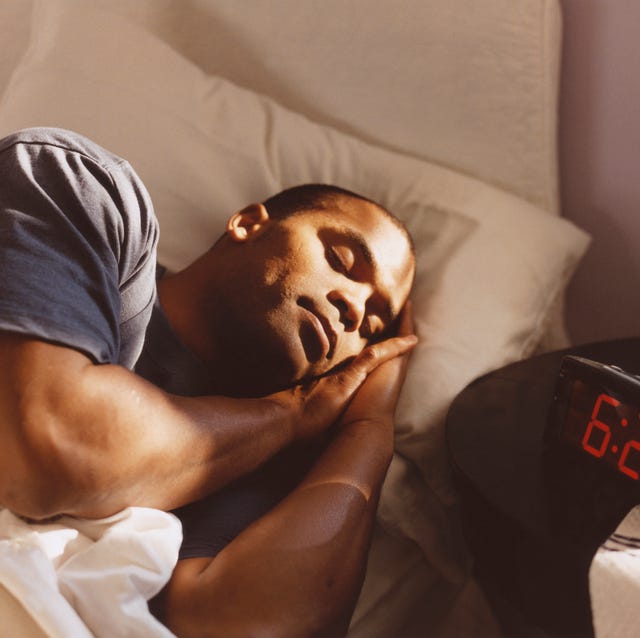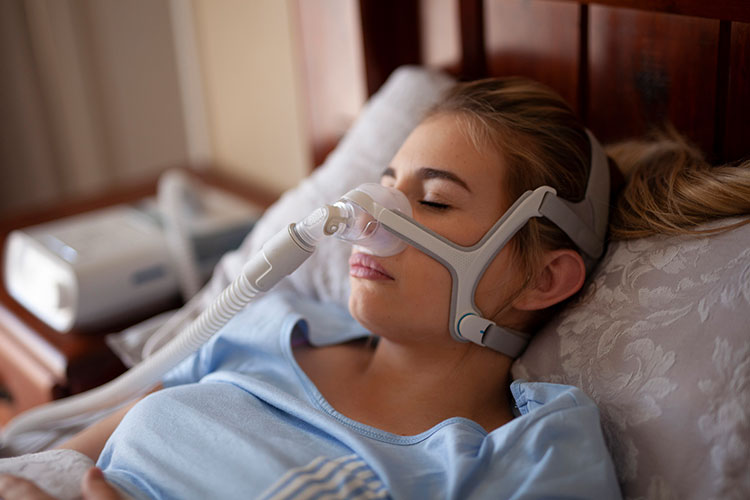Specialist Insomnia Counseling - Obtain Professional Advice
Specialist Insomnia Counseling - Obtain Professional Advice
Blog Article
Efficient Treatment Solutions for Managing Rest Disorders and Enhancing Relaxing Rest
In the world of health care, the management of rest disorders and the mission for restful sleep are pivotal elements of overall health. As we browse the intricate landscape of sleep conditions and seek to boost our rest experience, a deeper understanding of these treatment options might hold the key to unlocking a much more relaxing and meeting corrective trip.
Cognitive Behavioral Therapy for Sleep Problems (CBT-I)
Cognitive Behavioral Therapy for Sleeplessness (CBT-I) is an organized, evidence-based therapy approach that focuses on addressing the underlying aspects adding to rest disruptions. This kind of treatment intends to modify behaviors and thoughts that intensify sleep problems, ultimately promoting healthy and balanced sleep patterns. CBT-I generally entails a number of essential components, including cognitive therapy, rest constraint, stimulation control, and rest health education and learning.
Cognitive therapy assists individuals identify and change unfavorable thought patterns and beliefs about sleep that might be preventing their capacity to drop or remain asleep. Sleep restriction involves limiting the quantity of time spent in bed to match the individual's real sleep period, thereby increasing rest effectiveness (sleep disorder treatment). Stimulus control strategies assist establish a solid association between the bed and sleep by urging people to visit bed only when drowsy and to stay clear of taking part in boosting tasks in bed
Furthermore, sleep hygiene education and learning focuses on creating healthy sleep routines, such as maintaining a consistent rest routine, creating a relaxing going to bed routine, and maximizing the sleep setting. By resolving these aspects comprehensively, CBT-I offers an efficient non-pharmacological treatment for managing sleep problems and enhancing overall rest quality.
Sleep Health Practices
Having established the structure of cognitive restructuring and behavioral alterations in attending to insomnia with Cognitive Behavioral Treatment for Sleeplessness (CBT-I), the emphasis now shifts towards discovering necessary Sleep Hygiene Practices for preserving optimum sleep high quality and total well-being.
Rest health practices include a variety of practices and ecological variables that can considerably influence one's capability to drop asleep and stay asleep throughout the evening. Consistent rest and wake times, producing a relaxing going to bed routine, and maximizing the sleep atmosphere by maintaining it dark, peaceful, and cool are important components of excellent sleep hygiene. Limiting exposure to screens before bedtime, preventing stimulants like caffeine close to bedtime, and taking part in routine exercise throughout the day can also promote better sleep quality.
In addition, exercising leisure methods such as deep breathing exercises or reflection before bed can aid relax the mind and prepare the body for rest. By integrating these sleep health methods into one's daily routine, people can develop a healthy and balanced sleep pattern that sustains relaxed rest and general well-being.
Relaxation Strategies and Mindfulness
Executing relaxation techniques and mindfulness practices can play a pivotal role in promoting a feeling of calmness and advertising top quality sleep. sleep therapy. These methods intend to peaceful the mind, reduce stress, and create an ideal atmosphere for restful rest. One widely practiced method is deep breathing workouts, where individuals focus on sluggish, deep breaths to relax the mind and body. Progressive muscular tissue relaxation entails tensing and then launching each muscular tissue group, advertising physical leisure. Additionally, assisted images can help move individuals to a peaceful location in their minds, helping in stress decrease and enhancing rest top quality.
By including these practices into a bedtime regimen, people can signify to their bodies that it is time to prepare and unwind for sleep. On the whole, incorporating relaxation methods and mindfulness techniques can significantly contribute to handling rest conditions and boosting total rest high quality.

Medication Options for Rest Disorders
After discovering relaxation techniques and mindfulness techniques as non-pharmacological interventions for improving rest quality, it is vital to consider medicine alternatives for individuals with rest disorders. In cases where lifestyle changes and therapy do not provide enough alleviation, medicine can be a beneficial device in taking care of rest disruptions.
Commonly prescribed medications for rest problems consist of benzodiazepines, non-benzodiazepine hypnotics, antidepressants, and melatonin receptor agonists. Benzodiazepines, such as diazepam, are sedatives that can assist cause sleep, however they are commonly advised for temporary usage as a result of the threat of reliance. Non-benzodiazepine hypnotics like zolpidem are likewise used to treat sleeping disorders and have a lower risk of dependancy contrasted to benzodiazepines. Antidepressants, such as trazodone, can be beneficial for people with co-occurring clinical depression and rest disruptions. Melatonin receptor agonists, like ramelteon, target the body's all-natural sleep-wake cycle and can be helpful for regulating sleep patterns.
It is important for people to seek advice from a healthcare supplier to identify one of the most appropriate medication choice based on their particular sleep problem and case history.
Light Treatment for Body Clock Policy
Light treatment, likewise referred to as phototherapy, is a non-invasive treatment method used to manage circadian rhythms and improve sleep-wake cycles. This therapy includes exposure to brilliant light that mimics natural sunshine, which helps to reset the body's body clock. By exposing people to specific wavelengths of light, generally in the early morning or night depending upon the preferred result, light therapy can successfully readjust the circadian rhythm to promote wakefulness throughout the day and enhance relaxing rest during the night.
Research has actually revealed that light therapy can be specifically helpful for rem sleep disorder treatment individuals with body clock disorders, such as delayed rest phase syndrome or jet lag. It can likewise be helpful for those experiencing seasonal affective problem (SAD), a kind of depression that normally takes place during the winter season months when natural light exposure is minimized. Light treatment is generally well-tolerated and can be utilized together with other treatment approaches for sleep problems to maximize outcomes and boost total rest quality.
Final Thought
In verdict, effective treatment remedies for taking care of rest problems and improving peaceful sleep include Cognitive Behavioral Therapy hormone imbalance insomnia for Sleeplessness (CBT-I), rest hygiene practices, leisure strategies and mindfulness, drug choices, and light therapy for circadian rhythm regulation. These techniques can aid people enhance their sleep quality and overall health. It is necessary to speak with a doctor to identify the most suitable method for resolving rest issues.
As we navigate the intricate landscape of sleep disorders and seek to boost our sleep experience, a deeper understanding of these therapy services might hold the secret to opening an extra relaxing and meeting corrective trip.
Rest constraint entails restricting the amount of time invested in bed to match the person's actual rest duration, thereby raising rest performance. Regular rest and wake times, developing a relaxing bedtime regimen, and maximizing the sleep setting by keeping it dark, silent, and cool are important components of excellent sleep health. Light therapy is normally well-tolerated and can be used in conjunction with other treatment methods for sleep problems to enhance outcomes and boost general rest top quality.

Report this page